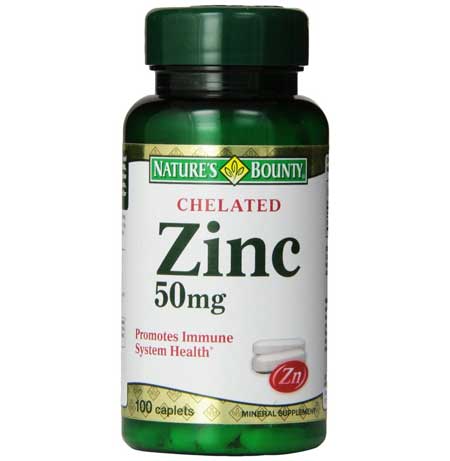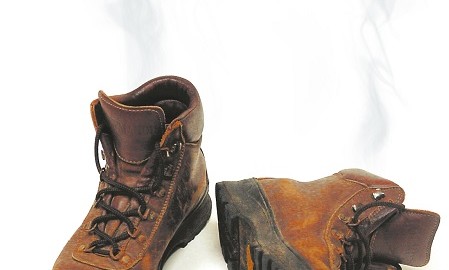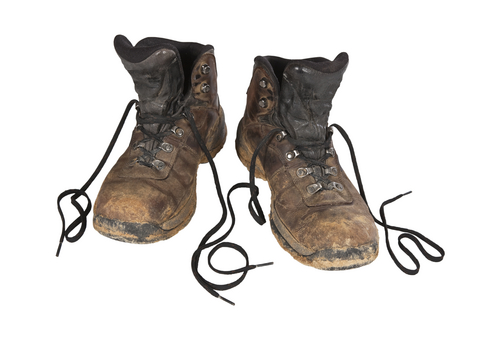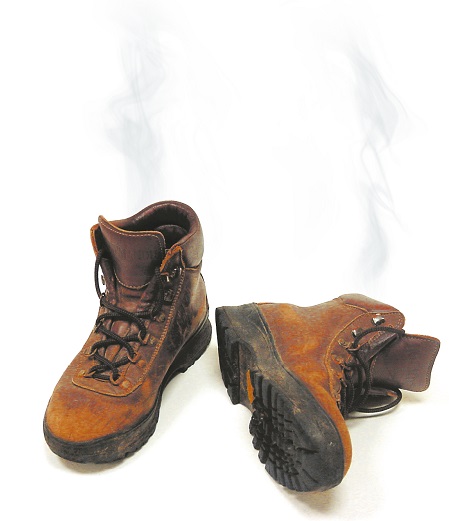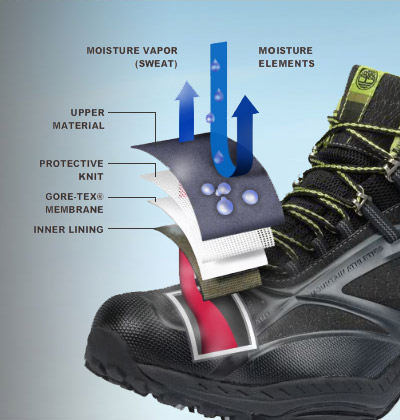They say that women don’t sweat, they merely glow. Well, I glow like a pig. After a few miles’ hiking, my feet look like I’ve just got out of the shower.
Sweat cools the body 22 times more efficiently than air, apparently, so at least this makes me more comfortable in hot weather.
The only sensation that’s really unbearable is slimy, swampy, sweaty feet. My toes slide around and the damp skin chafes painfully.
The sweat ferments inside my boots, and by the time I get to camp, the smell of my socks could intimidate a skunk.
Judging by the racks of foot deodorants available in the average camping shop, I’m not the only one with this issue.
So what’s the problem? And more importantly, the solution?
Why do so many hikers suffer from uncomfortably sweaty feet?
A lot of it is due to the nature of our hobby. The exertion and friction of a strenuous walk increases blood flow to the feet, making them warmer.
Thick socks and tight-laced walking boots trap the heat and stop sweat from evaporating. This leads to the ‘sauna boots’ feeling backpackers know so well.
Walking long distances with sweaty feet is not only uncomfortable, but can be dangerous
Warmth and perspiration soften the skin, which makes blisters form more easily and can cause painful cracking when your skin dries out.
Wet skin is more susceptible to fungal infections, and at high altitudes damp skin dramatically increases the risk of frostbite.
Skin care tips to reduce sweating during hiking
Any spray antiperspirant will help to keep your feet dry– there are brands made especially for hikers’ feet, but a cheap brand for underarms will do the same job.
Don’t mess with foot powders. They soak up sweat before it becomes an issue but most contain cornstarch which makes an ideal growing bed for fungus when moist.
- If you suffer from serious odor when walking, hiking or backpacking then get the special antiseptic foot powders without corn starch. Stay away from baby powder.
Hardcore backpackers treat their feet with astringent rubs to toughen the skin. In layman’s terms, an astringent is a chemical which stings your skin and causes your pores to close temporarily, which reduces sweating.
Astringents include; acacia, alum, bayberry, distilled vinegar, sage, yarrow, witch hazel, very cold water, and rubbing alcohol.
An old climbers trick:
Several days before your trip, spray your feet every day with Arid Extra Dry. Alpinists and mountaineers do this to reduce sweating of the feet and avoid frostbite at altitude. Not guaranteed but it may work for you too.
Everything from alcohol gels to formaldehyde can be used to reduce foot sweating for a few hours.
Old-fashioned remedies include soaking in black tea (feels nice, doesn’t work very well) and the military trick of urinating on your own feet (works, but I’d rather be sweaty.)
- Note: Bear in mind that extremely sweaty feet (plantar hyperhidrosis) can be a sign of a medical issue. If your feet sweat constantly, even when you’re not hiking, then better socks won’t help you – you’ll need to seek medical attention.
Hiking socks to keep feet cool and dry & for extra skin comfort
Every hiker has their own special preference for socks that keep feet cool. Wearing quality socks is essential as they will also help prevent foot problems including; pain, numbness, swelling, cracks, foot odor, blisters, and skin maceration.
To combat sweat, it’s wise to wear thin moisture-wicking socks next to the skin, plus a pair of outer socks on top to protect your feet from rubbing. Here’s an overview of popular hiking liner socks.
The layer next to the skin is the most important choice. Cotton socks feel cool and allow feet to breathe on long hikes, but they quickly become sodden with sweat and take a long time to dry out.
Wool absorbs perspiration into the core of the fiber (unlike cotton, which simply soaks through) so the surface stays relatively dry to the touch, but wool socks are so warm that they can actually increase your rate of perspiration while walking.
A highly recommended option are Merino wool socks which are praised for their unique ability to keep feet warm and cool as well as reduce odor and sweating.
Polyester dries quickly, but isn’t absorbent, so can make sweaty feet feel a bit slimy.
Whatever your choice of fabric, be sure to pull your liner socks up high – they should stick out above the top of your boots, so the moisture they wick away will have a chance to evaporate instead of being trapped next to your feet.
How to choose the right hiking boots
When it comes to hiking shoes, look for footwear which dries quickly.
The most suitable boots for sweaty feet are light, non-waterproof, and not too heavily padded. Of course it’s a matter of taste too, but I prefer non-waterproof footwear because water-proof shoes don’t breathe thus making your feet wet from sweat.
Also because previous boots became non-waterproof after a while which really sucked because they didn’t keep my feet dry anymore, nor did they ever dry out completely.
Decide if you really need water-proof hiking boots. Often, these will not keep your feet dry.
Obviously it depends on where you hike or backpack. In areas lots of mud pits and stream crossings you will be happier wearing waterproof footwear than while backpacking in Bangkok. Here, trail runners or similar footwear may be more appropriate.
Waterproofing keeps rain out, but traps sweat in.
My favorite hiking shoe options..
- Simple, light, all leather (unlined) hiking shoes. They are waterproof which is nice. Downside of such hiking boots is that they are heavy.
- Non-waterproof trail runners or hiking shoes. The importance of hiking footwear weight is often underestimated. Extra weight on your feet will drain your energy.
Wear leather boots, without membranes, that are not waterproof with gaiters, to keep most moist out. You will have to go stand in a river to soak them, otherwise they will keep your feet dry.
Other options
Fancy supportive cushioning, while it might feel nice underfoot, is a breeding ground for the bacteria which cause foot odor and skin infections.
For this, cheap boots can be more suitable than expensive ones for people who get sweaty feet.
The most comfortable footwear I’ve found is a pair of stout hiking sandals worn with fine-knit absorbent socks underneath.
It’s hardly a stylish solution, but when you’re on top of a hill in the middle of nowhere, the sheep won’t laugh at you. I also have had great experiences with Merrell hiking shoes.
When shopping for hiking shoes, make sure to pay attention to..
Types of Hiking Boot Uppers
Even more so as with normal shoes, hiking boot materials impact a boot’s breathability.
- Full-grain leather: highly durable, scratch and water resistant. Common in backpacking boots. Requires ample break-in time.
- It is not as light or breathable as nylon/split-grain leather combinations.
- Split-grain leather: lighter than full-grain, less water resistant. Often combined with nylon or nylon mesh for breathable, lightweight characteristics.
- Nubuck leather: is processed full-grain leather to resemble suede. Durable, flexible, and water resistant. water and abrasion. Requires break-in time.
- Synthetics: such as nylon, polyester, and “synthetic leather” are lighter than leather, more affordable and dry faster. Less durable.
- Waterproof membranes: hiking boots may sport uppers manufactured with breathable waterproof membranes (i.e. eVent® , Gore-Tex®). Membranes lower breathability which can cause foot perspiration.
Then there’s hiking footwear with specialized technologies such as;
- M Select FRESH prevents odor
- Waterproof and breathable Gore-Tex Performance Comfort lining
Check out these popular breathable hiking boots on Amazon
Tips on how to keep hiking feet fresh
When you’re planning to walk for more than a couple of hours, make sure to bring a spare pair of dry socks to change into.
Backpackers on long trips often bring three pairs: one to wear, one in the bag, and a just-washed pair pinned to their backpack to dry.
Every few hours, you take off your sweaty socks, rinse them, and rotate the pairs. That way, however much you sweat, you’ll always have a clean(ish) and dry pair of socks to change into.
If it’s really cold, you can use an old military trick instead and dry your soggy socks by tucking them into your underarms.
In theory, it’s important to wear different shoes every day to allow your footwear to dry fully, which prevents sweat-damp insoles from ripening into full-blown stink.
If you’re backpacking, though, a spare pair of boots can add 4 pounds to your load, and that just isn’t practical. Bringing another pair of insoles is.
To help the sweat dry from your single pair of boots, bring a pair of lightweight shoes (like flip-flops or Crocs) to change into as soon as you’ve made camp.
When you only have a few hours to dry your damp boots, it helps to invert them. If you leave your shoes upright overnight, then all the day’s accumulated sweat will drip down the sides and pool in the sole, making for a squishy surprise when you put them on the next morning. Yum.
If you can’t balance them upside down, then undo the laces partway and string them from a beam in your tent.
Getting into a routine
On a long hike, it’s essential to get into a routine to keep your feet dry and comfortable – once you notice your sweaty toes are starting to blister, the damage has already been done.
Every time you stop for a break, elevate your feet and remove your shoes so you can cool off. If it’s too cold or wet to actually take your shoes off, then at least untie the laces and pull the tongues loose to get some air to circulate.
Try to stop your legs overheating, too. Your feet will always get warm on a strenuous hike, but by keeping your legs cool with loose clothing and breathable fibers, it can help counteract some of the heat inside your boots.
Bringing it all together
A combination of these tricks – better skincare, lighter boots, regular changes of socks – should help reduce that swampy feeling when you hike. My favorite combination is leather shoes and merino wool socks.
Feet have more sweat glands than any other part of the body, so although it’s easy to minimize perspiration when you’re hiking, it’s impossible to prevent it totally.
When I’m walking in hot weather and my sweat glands are overpowering my wicking socks, I cheer myself up with a science fact: the bacteria which make feet smell, Brevibacterium, can live only on human feet.
When my socks are wringing wet with sweat, I like to think that the Brevibacterium regard me as a magnanimous god, generously donating sweat so they may feast and multiply.
You may also like:
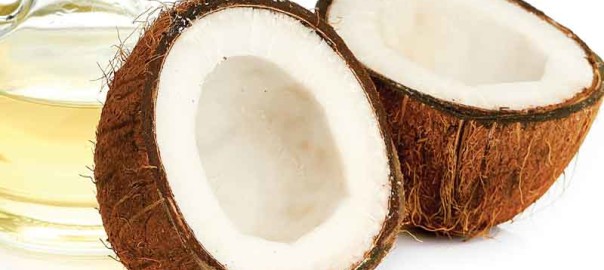
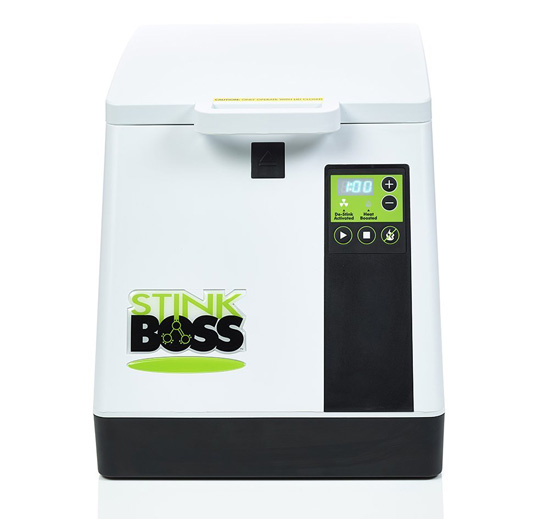
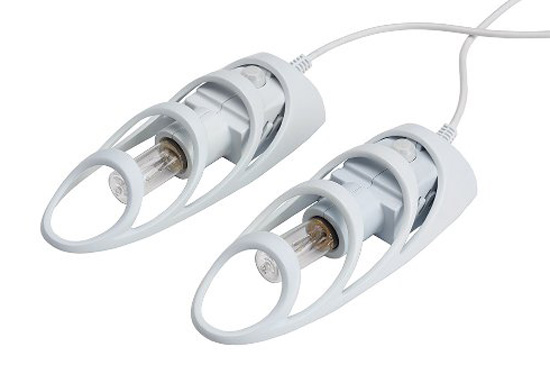
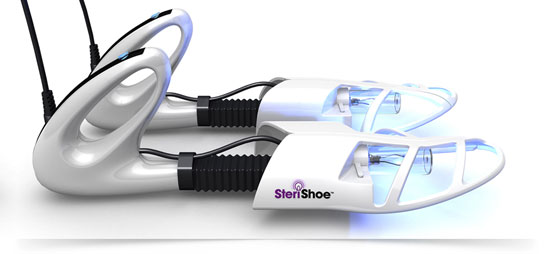
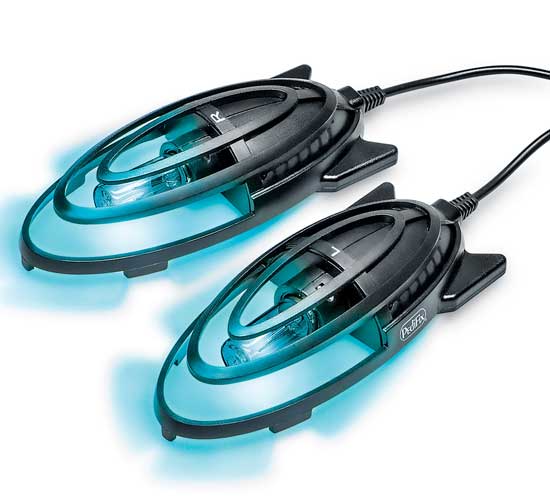
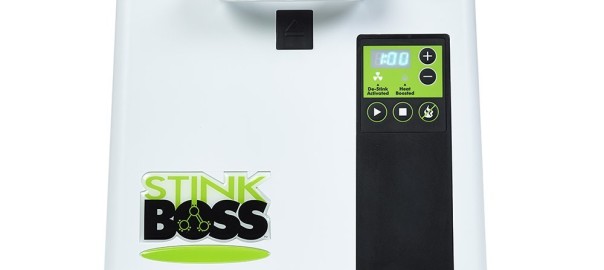
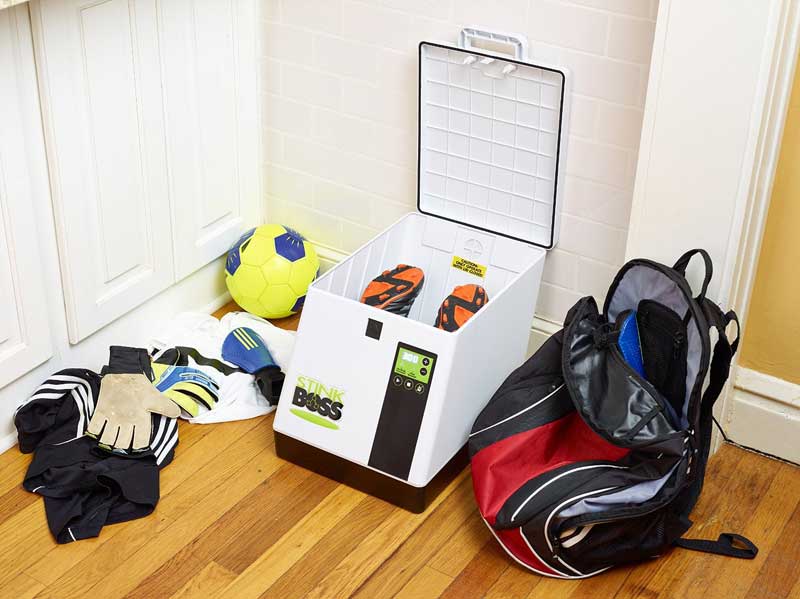
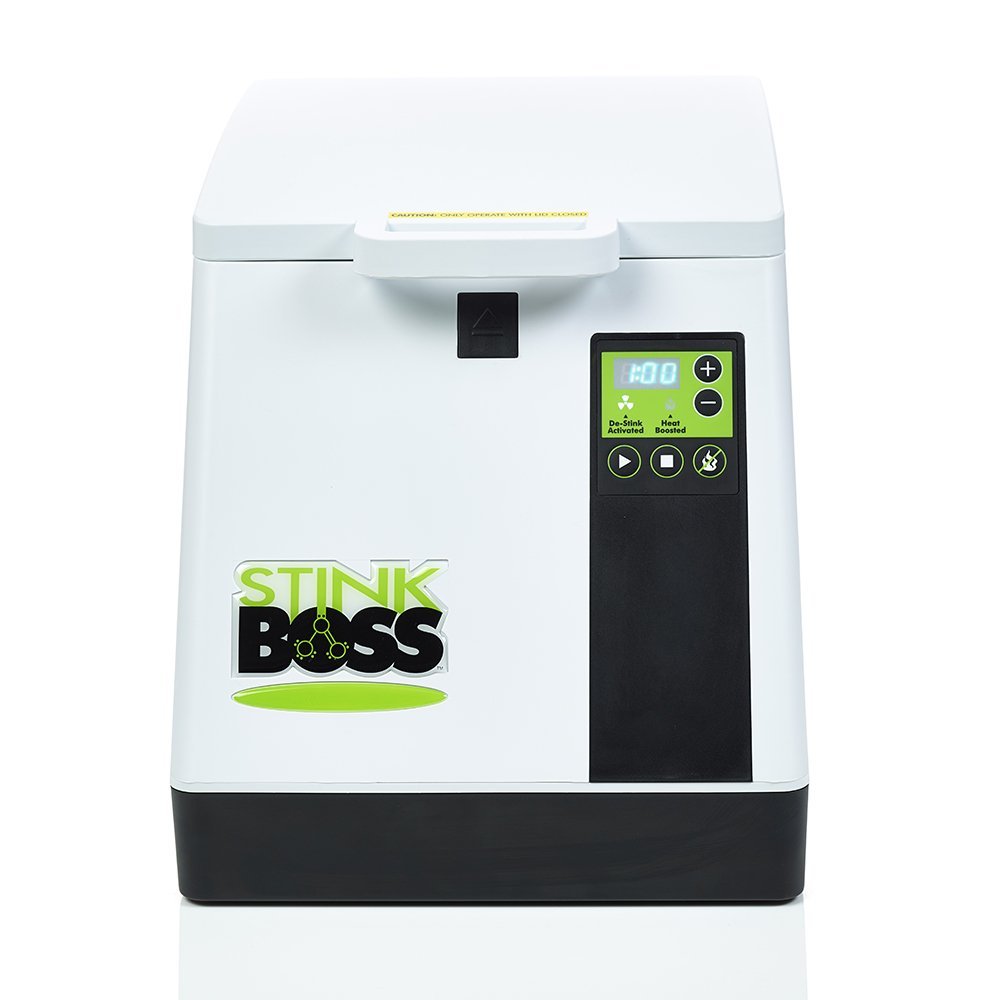
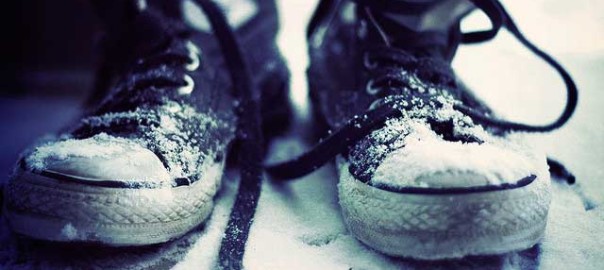
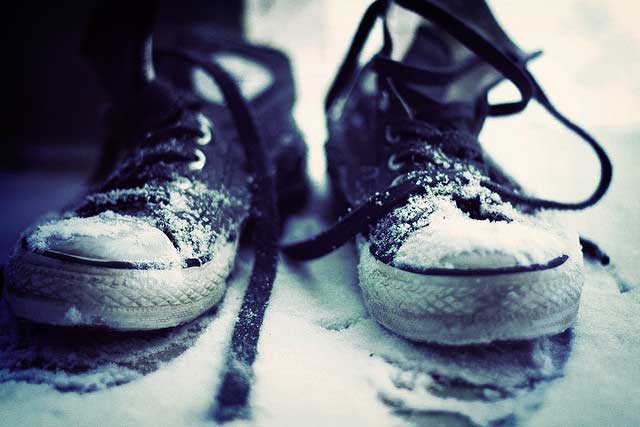
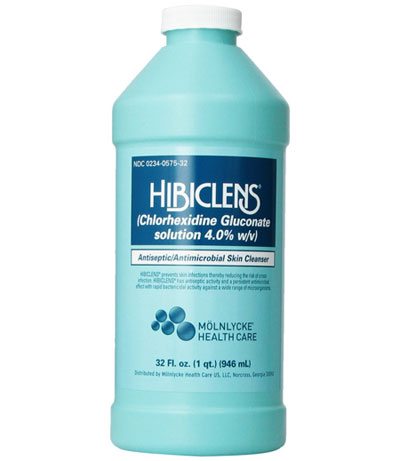
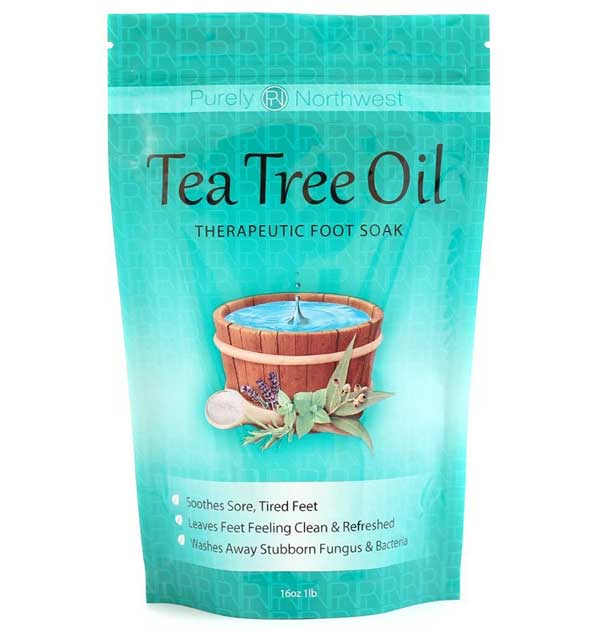
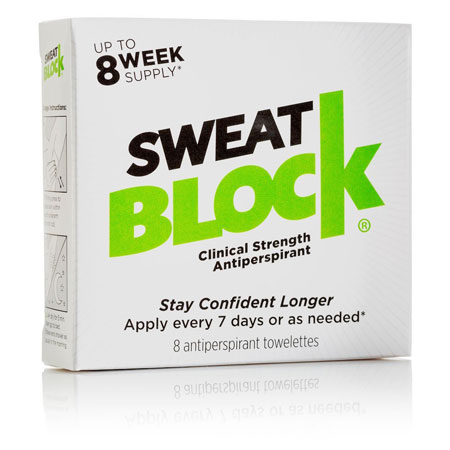
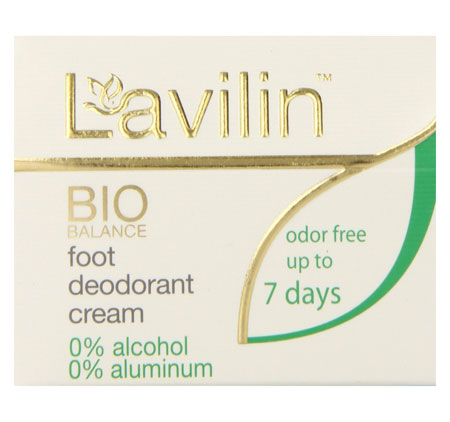

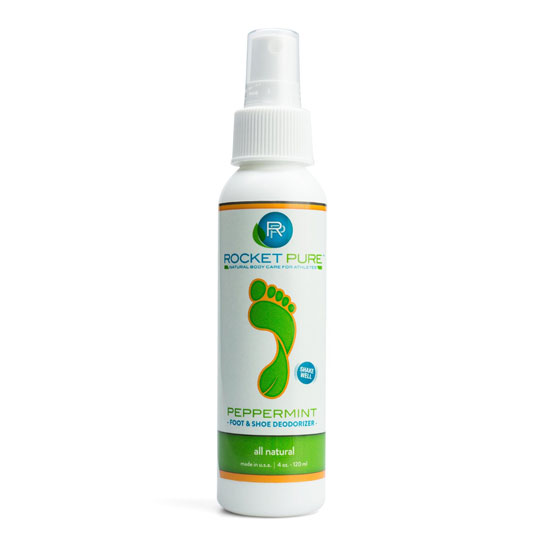
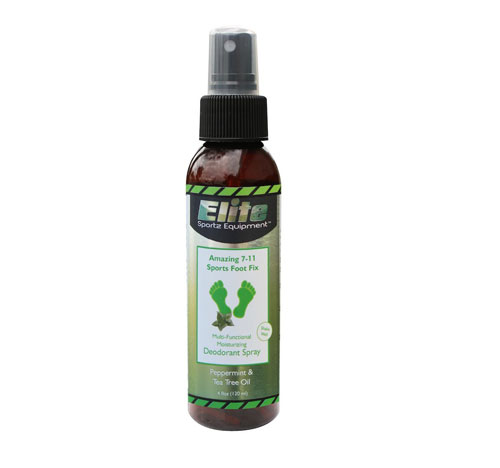
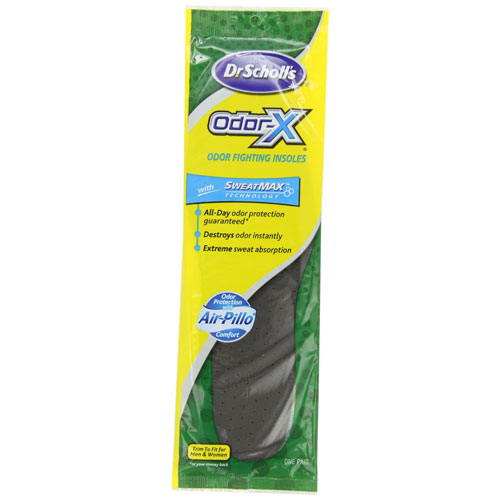
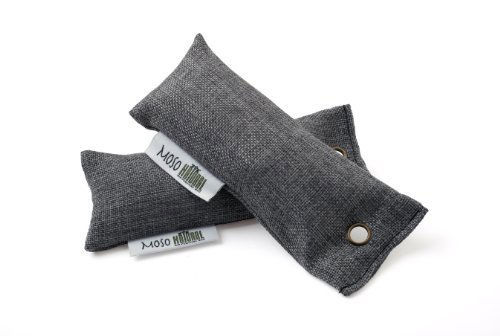
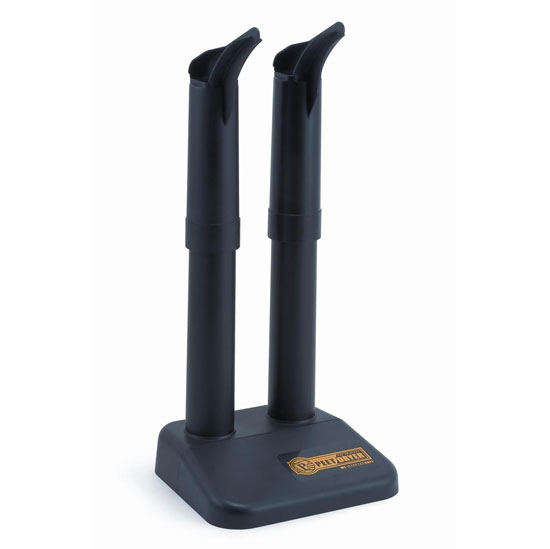
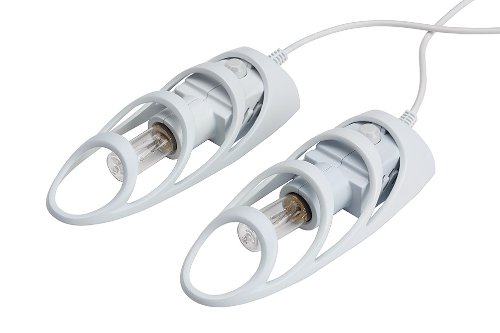
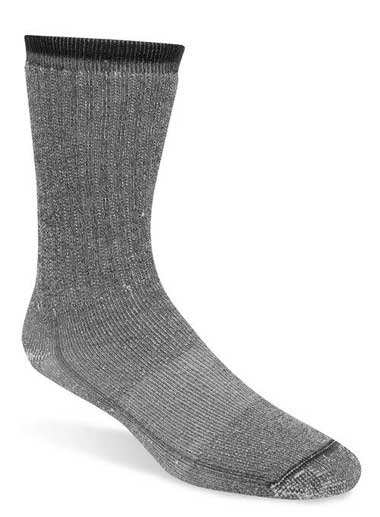 Contrary to what is commonly thought, cotton socks are not your best option when it comes to reducing sweaty feet. Wool socks and wicking socks are the way to go.
Contrary to what is commonly thought, cotton socks are not your best option when it comes to reducing sweaty feet. Wool socks and wicking socks are the way to go.